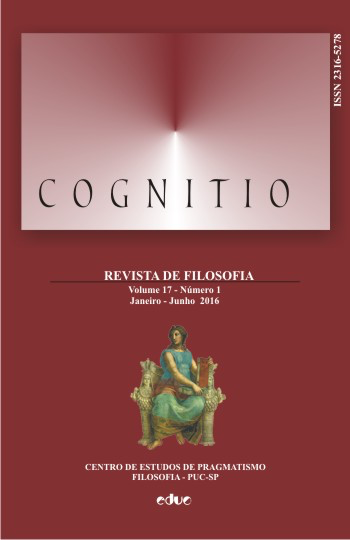Building castles in Spain: Peirce’s idea of scientific inquiry and its applications to the Social Sciences and to Ethics
Keywords:
Pragmatism, Peirce, Utilitarianism, Scientific inquiry, Pluralism, Ethics, Social Sciences.Abstract
Several recent publications attest to a renewed interest, at the dawn of the 21st century, in the philosophy of Charles S. Peirce. While agreeing with the relevance of Peirce philosophy for the 21st century, we disagree with some interpretations of Peirce as a utilitarian-based pragmatist, or with attempts to extract from Peirce a theory of social justice for 21st century societies. A critical exploration of Peirce’s philosophy of science, particularly his idea of scientific inquiry as “the study of useless things”, serves to illuminate the un-pragmatic and anti-utilitarian dimension of Peirce’s thought, as well as to reveal his true ethical relevance for the 21st century.Metrics
Metrics Loading ...
Downloads
Published
2016-12-27
How to Cite
Valldejuli, L. G., & Nubiola, J. (2016). Building castles in Spain: Peirce’s idea of scientific inquiry and its applications to the Social Sciences and to Ethics. Cognitio: Revista De Filosofia, 17(1), 131–142. Retrieved from https://revistas.pucsp.br/index.php/cognitiofilosofia/article/view/30224
Issue
Section
Cognitio Papers









